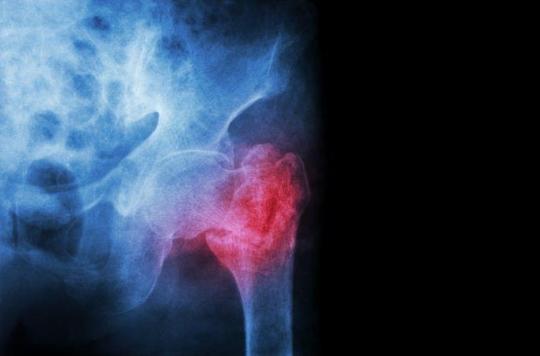American researchers have discovered that a treatment, currently being tested to prevent certain cancers, was particularly effective in preventing stomach cancer.

Helicobacter pylori bacteria infect the stomachs of half the world’s population. Only 1% of those infected develop stomach cancer, the third leading cause of cancer death worldwide. American researchers have discovered that a treatment could be effective in preventing this disease. Indeed, DFMO (difluoromethylornithine) is already known to block cell growth, but it would also inhibit the activity of the H. pylori bacterium. The results of the study are published in the journal Proceedings of the National Academy of Sciences.
It is not necessary to remove the bacteria
The H. pylori bacterium has a somewhat ambiguous role. It can indeed be dangerous, cause an ulcer or cancer of the stomach. But sometimes treating the bacteria infection and getting rid of it can have other health consequences. H. pylori protects against asthma, certain allergic disorders and prevents gastroesophageal reflux. “H. pylori has co-evolved with humans for at least 60,000 years, probably longer, and attempting to prevent stomach cancer by eliminating infection through the widespread use of antibiotics is not necessarily a good idea,” said Keith Wilson, professor of medicine and professor of pathology, microbiology and immunology.
A trial treatment
“Our study suggests that it would be possible to reduce the virulence of the bacteria without having to eliminate it. It’s a speculative and unusual way to think about an infection, but it could be an interesting strategy,” continues the researcher, who also leads the Vanderbilt Center for Mucosal Inflammation and Cancer. A clinical trial is currently underway concerning DFMO, this treatment which therefore makes it possible to inhibit the activity of the H. pylori bacterium, to prevent stomach cancer. Wilson’s team previously proved that the treatment, in animals, caused a genetic mutation. And animals that had this genetic mutation did not develop stomach cancer. The next step for the researchers is therefore to compare these results on humans.

.













